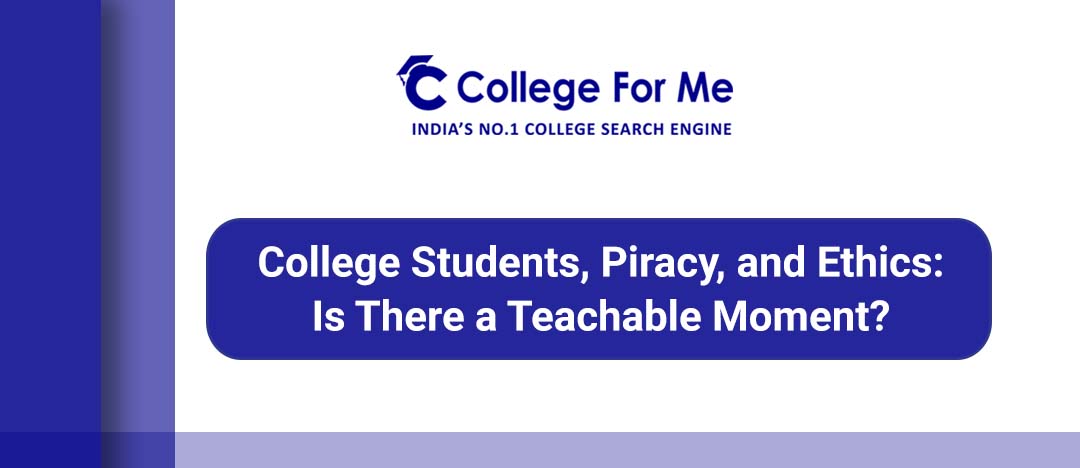Career Scopes Of A B.Tech. Student
There is a high demand for B.Tech. degree holders in the private sector, yet, there is also the opti...

In an age where information is readily accessible and digital media dominates our lives, issues related to piracy have become increasingly relevant, particularly among college students. The temptation to engage in piracy, whether it involves downloading copyrighted content without permission or sharing files illegally, presents a complex ethical dilemma. As educators and society at large grapple with this issue, there arises a significant opportunity for colleges and universities to turn piracy incidents into teachable moments that foster ethical awareness, critical thinking, and responsible digital citizenship.
The Piracy Predicament
Piracy is the unauthorized duplication, distribution, or use of copyrighted material, such as movies, music, software, and academic resources. College students, often equipped with high-speed internet and demand for digital content, can be tempted by the allure of free access to material that might otherwise be expensive or restricted. However, this practice raises questions about intellectual property rights, fair compensation for creators, and the broader consequences of such actions on industries and innovation.
Ethical Implications
The heart of the piracy issue lies in ethics. Engaging in piracy often involves bypassing legal and ethical boundaries for personal gain. While some may argue that sharing digital content without charge is a form of democratizing information, it also raises concerns about respecting the hard work and creativity of content creators. Addressing these ethical considerations can encourage students to think critically about their actions and the impact they have on the individuals and industries affected by piracy.
Education as a Catalyst
Colleges and universities play a pivotal role in shaping students' values and perspectives. Incorporating discussions about piracy and ethical dilemmas into curricula can provide a platform for students to explore these complex issues in a controlled and guided environment. Faculty members can engage students in dialogues that encourage them to consider the implications of piracy on creators, artists, and the larger cultural landscape. By framing piracy as an ethical issue, educators can encourage students to reflect on their behavior and make more informed decisions.
Developing Digital Citizenship
Teaching students about piracy goes beyond discussing legal consequences—it is also an opportunity to foster digital citizenship. Understanding the importance of respecting intellectual property rights, acknowledging creators' efforts, and supporting legitimate avenues of content consumption are all vital aspects of responsible online behavior. These lessons extend beyond college years, influencing how students engage with the digital world in their personal and professional lives.
Alternative Solutions
Educational institutions can also take practical steps to address piracy issues. Providing students with access to legitimate resources and platforms for digital content can help reduce the temptation to engage in piracy. Collaborating with content creators and industries to offer affordable alternatives can make legal options more attractive to students. Additionally, educating students about Creative Commons licenses and open-access resources can promote ethical sharing and collaboration.
The prevalence of piracy among college students presents a unique opportunity for higher education institutions to engage in meaningful conversations about ethics, responsibility, and digital citizenship. By framing piracy as an ethical dilemma and incorporating discussions about its implications into curricula, colleges can equip students with the critical thinking skills needed to navigate complex issues in the digital age. Ultimately, addressing piracy goes beyond preventing legal violations; it's about cultivating a culture of respect for intellectual property and fostering responsible behavior that will benefit students and society as a whole.

There is a high demand for B.Tech. degree holders in the private sector, yet, there is also the opti...

If you are looking for a bright and prospective career, then getting a B.Tech. in CSE must be under ...
Comments (0)